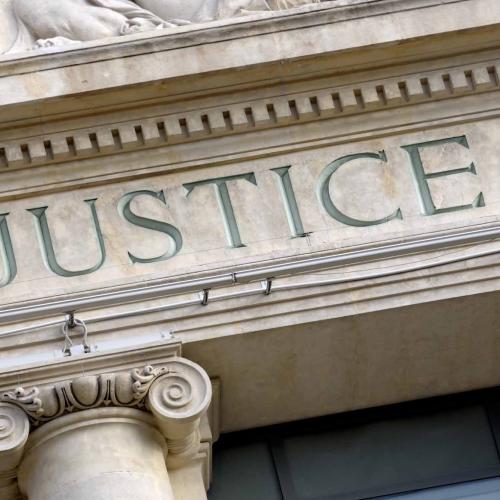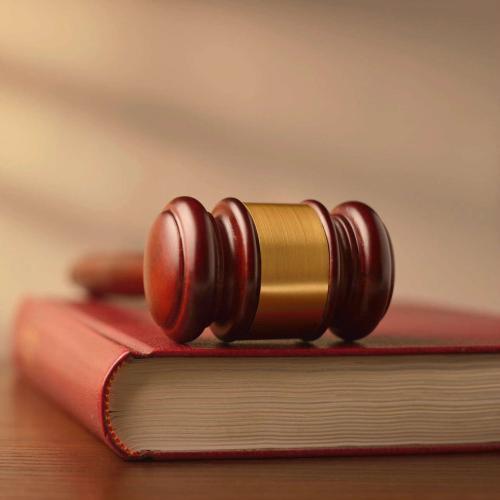In the realm of criminal law, the intent behind actions, whether executed in good faith or bad faith, can often seem paramount. However, in certain legal contexts, this distinction becomes irrelevant, particularly when considering the obligations of the prosecution regarding evidence disclosure. This article explores the principle that the good or bad faith of prosecutors does not affect the duty to disclose evidence and the implications of this doctrine in the U.S. criminal justice system.
The Duty to Disclose
Prosecutors have an obligation to disclose evidence that is favorable to the defense. This duty exists regardless of the prosecutor’s intentions or motivations. The focus is on the materiality and potential impact of the evidence on the defendant’s case, not on whether the prosecutor acted with good or bad intentions.
Legal Foundations
The requirement to disclose exculpatory and impeaching evidence is grounded in the fundamental right to a fair trial. The U.S. Constitution guarantees defendants the right to due process, which includes access to all evidence that could influence the outcome of their trial. This principle ensures that justice is served based on the facts of the case, not on the conduct or intentions of the prosecuting attorney.
Good Faith vs. Bad Faith
The distinction between good faith and bad faith centers on the prosecutor’s intent. Good faith actions are those taken with honest intent and without malice, while bad faith actions involve intentional misconduct or a willful disregard for the defendant’s rights. However, in the context of evidence disclosure, this distinction is immaterial. The critical issue is whether the evidence is favorable to the defense and material to the case.
Good Faith
Good faith on the part of the prosecutor does not excuse the failure to disclose favorable evidence. Even if a prosecutor believes they are acting in the best interest of justice or is unaware of the exculpatory nature of the evidence, they are still required to disclose it. The obligation to ensure a fair trial for the defendant supersedes any subjective good intentions.
Bad Faith
Bad faith actions, involving intentional suppression or destruction of evidence, are egregious violations of prosecutorial duties. While bad faith can result in additional legal consequences such as sanctions, disciplinary actions, or criminal charges against the prosecutor, the primary concern remains the impact on the defendant’s right to a fair trial. The presence of bad faith exacerbates the violation but does not alter the fundamental obligation to disclose.
Implications for Criminal Justice
The principle that good faith or bad faith is irrelevant underscores the objective nature of the disclosure duty. This approach ensures that the focus remains on the defendant’s rights and the integrity of the trial process. It eliminates potential loopholes where prosecutors might escape accountability by claiming ignorance or good intentions.
Ensuring Fair Trials
By emphasizing the irrelevance of prosecutorial intent, the legal system reinforces the importance of a fair trial. Defendants are entitled to all favorable evidence, irrespective of how it was handled or perceived by the prosecution. This ensures that the outcome of a trial is based on a comprehensive examination of all relevant facts, rather than the conduct or state of mind of the prosecuting attorney.
Accountability and Oversight
This principle also promotes accountability and oversight within the criminal justice system. Prosecutors are aware that their subjective intentions do not mitigate their legal obligations, compelling them to adopt more rigorous standards for evidence review and disclosure. This leads to better training, more stringent protocols, and enhanced scrutiny of prosecutorial practices.
Judicial Remedies
When prosecutors fail to disclose favorable evidence, the courts have several remedies at their disposal to address the violation and ensure justice is served. These remedies are applied regardless of the prosecutor’s intent, focusing solely on rectifying the harm caused to the defendant’s right to a fair trial.
Pre-Trial Remedies
Prior to trial, the defense can file motions to compel the disclosure of evidence or to dismiss charges if they believe prosecutorial non-compliance has compromised the case. Courts can grant continuances to allow the defense time to review newly disclosed evidence or, in severe cases, dismiss charges with prejudice to prevent retrial on the same charges. These remedies ensure that non-disclosure does not unfairly disadvantage the defense.
Post-Conviction Remedies
Post-conviction, courts can order new trials, modify sentences, or vacate convictions if it is determined that non-disclosure of favorable evidence impacted the trial’s outcome. These remedies aim to correct injustices and uphold the defendant’s right to a fair trial, emphasizing the significance of the disclosed evidence over the prosecutor’s intent.
Challenges and Criticisms
Despite the clarity of the principle that good faith or bad faith is irrelevant, its application can be challenging. Determining the materiality of evidence and the impact of non-disclosure often involves complex legal and factual assessments. Additionally, systemic issues such as inadequate training, resource constraints, and organizational culture can impede consistent compliance with disclosure obligations.
Materiality and Impact
Assessing the materiality of evidence requires evaluating whether there is a reasonable probability that the outcome of the trial would have been different had the evidence been disclosed. This assessment is inherently speculative and can lead to differing interpretations and outcomes. Courts must carefully balance the need to rectify potential injustices with the risk of undermining the finality of convictions.
Systemic Issues
Systemic issues within prosecutorial offices and law enforcement agencies can also pose challenges to compliance. Inadequate training on disclosure obligations, high caseloads, and resource constraints can hinder the thorough review and disclosure of evidence. Addressing these issues requires ongoing efforts to improve training, increase resources, and foster a culture of ethical conduct and accountability.
Reform and Improvement
Recognizing the importance of the principle that good faith or bad faith is irrelevant, various reforms have been proposed and implemented to enhance compliance with disclosure obligations. These reforms aim to strengthen the legal framework, improve prosecutorial practices, and ensure that defendants receive all evidence necessary for a fair trial.
Legislative Reforms
Legislative reforms have introduced clearer guidelines and stricter requirements for evidence disclosure. Some jurisdictions have enacted laws mandating automatic and reciprocal discovery, reducing the likelihood of non-disclosure. These laws establish uniform standards and procedures, promoting consistency and transparency in the disclosure process.
Training and Education
Enhanced training programs for prosecutors and law enforcement officers are crucial in improving compliance with disclosure obligations. These programs focus on the legal and ethical aspects of evidence disclosure, emphasizing the importance of impartiality and thoroughness. Ongoing education ensures that all individuals involved in the criminal justice system are aware of their duties and the potential consequences of non-compliance.
Technological Advancements
Technological advancements also play a significant role in improving evidence management and disclosure practices. Digital evidence management systems enable better organization, tracking, and retrieval of evidence, facilitating timely and accurate disclosure. These systems can help prosecutors identify and disclose all relevant evidence, regardless of their subjective beliefs or intentions.
The principle that good faith or bad faith is irrelevant underscores the objective nature of prosecutorial disclosure obligations. This approach ensures that the focus remains on the defendant’s right to a fair trial and the integrity of the judicial process, rather than the intentions of the prosecutor. By reinforcing this principle, the criminal justice system upholds the fundamental values of transparency, accountability, and justice.
Ongoing reforms, enhanced training, and technological advancements are essential in addressing the challenges and ensuring consistent compliance with disclosure obligations. By fostering a culture of ethical conduct and impartiality, the criminal justice system can better serve the interests of justice and protect the rights of all individuals involved.



